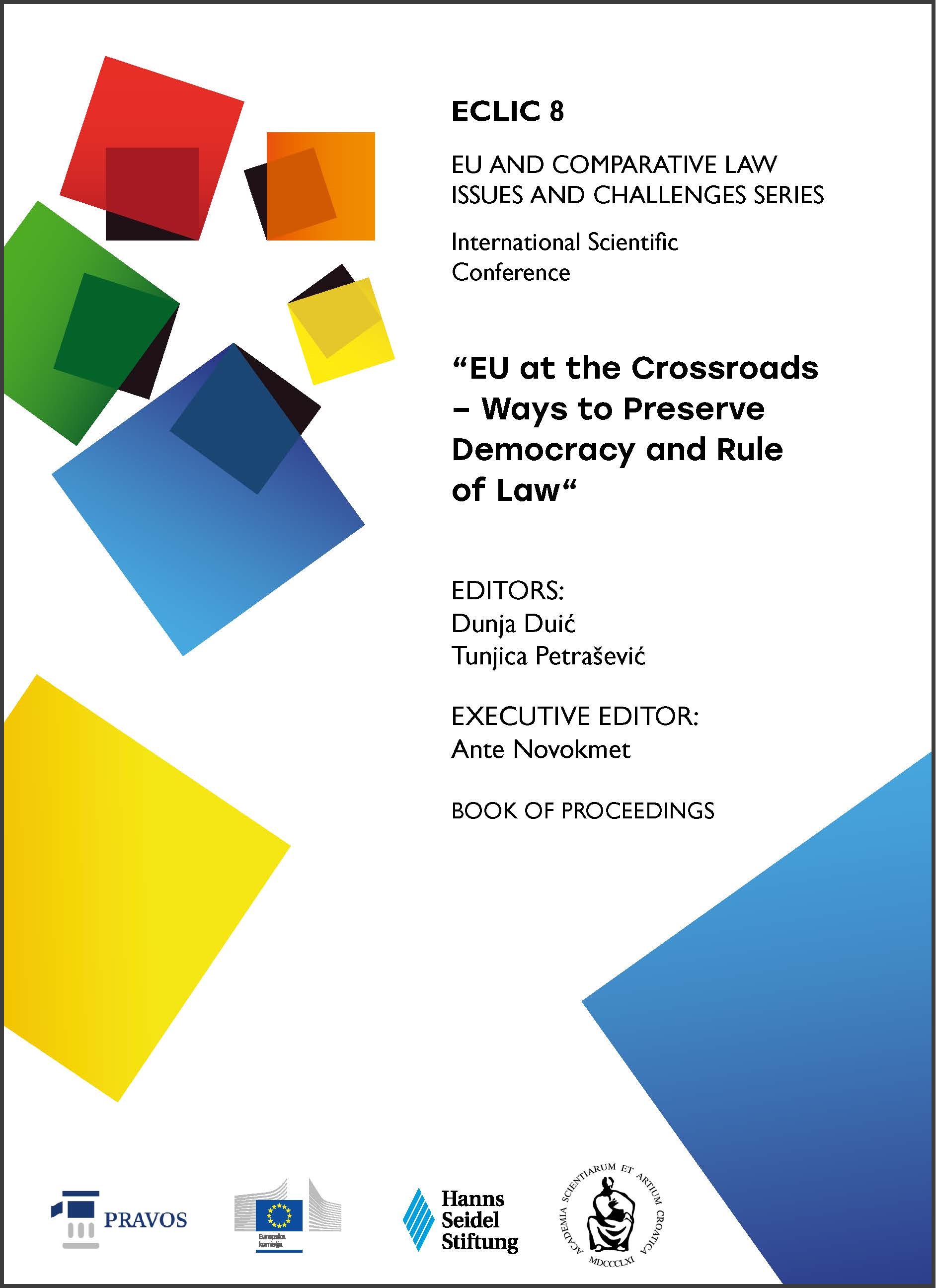PROPOSAL FOR PERMISSION TO REVISE - WHERE ARE WE FIVE YEARS LATER?
DOI:
https://doi.org/10.25234/eclic/32283Abstract
The amendment to the Civil Procedure Act from 2019 established revision by permission as the basic form of this extraordinary legal remedy, which in legal theory and practice caused numerous controversies and lively articulations of (counter)arguments by supporters and opponents of implementation. In the circumstances in which this kind of legislative intervention was carried out, which certainly has an impact on access to the court, it caused considerable resistance among practitioners and a part of the theory of law. On the other hand, there was a need to position the role of the Supreme Court of the Republic of Croatia in the Croatian legal system in accordance with the function established by the constitution and law. However, the intervention in the revision institute was carried out without a comprehensive analysis of all the factors that objectively endangered that function until that moment. This is therefore the starting point in this research, which aims to examine the achievements of the implementation of this institute in practice after five years of existence and to examine whether the goal that part of the professional and scientific community intensively strived for in the process of its implementation was truly realized. In the end, has the authority of the Supreme Court of the Republic of Croatia, with its newly strengthened function, set an example for the courts as a whole and is it correcting the mistakes of the lower courts that until then stifled its actual function. In addition to the effects of the introduction of this institute into the Croatian civil procedural law in today's conditions, the success of the proposal for permission to revise will be analysed in relation to practical challenges and doubts. The analysis of the problem of objectification and transparency of the admissibility criteria is considered extremely important in order to truly enable the applicants of the proposal for permission to revise to realize and protect their rights in a unique and equal way in relation to everyone. Clear and objective criteria for drawing up a proposal for permission to revise still do not exist, and they unjustifiably depend solely on the discretionary assessment of the court. The above cannot be an example of acting in the spirit of encouraging legal certainty. The previous disastrous passage of the proposal for permission to revise and the observed length of time in solving socially extremely sensitive issues indicate caution and the necessity of certain corrections in the institute of revision by permission itself. In the final remarks, an approach to the solution of open controversies and doubts will be offered in order to demystify the institute of revision by permission, or more specifically, the proposal for permission to revise, which at this moment is still a lottery for professionals who are authorized to invest it.
Downloads
Published
How to Cite
Issue
Section
License
Copyright (c) 2024 Vedrana Švedl Blažeka

This work is licensed under a Creative Commons Attribution-NonCommercial 4.0 International License.
Authors retain the copyright on the papers published in the Journal, but grant the right of first publication to the Journal. Papers accepted for publication or already published in ECLIC of the Faculty of Law in Osijek may be published by the author(s) in other publications only with proper notice of its previous publication in ECLIC.


